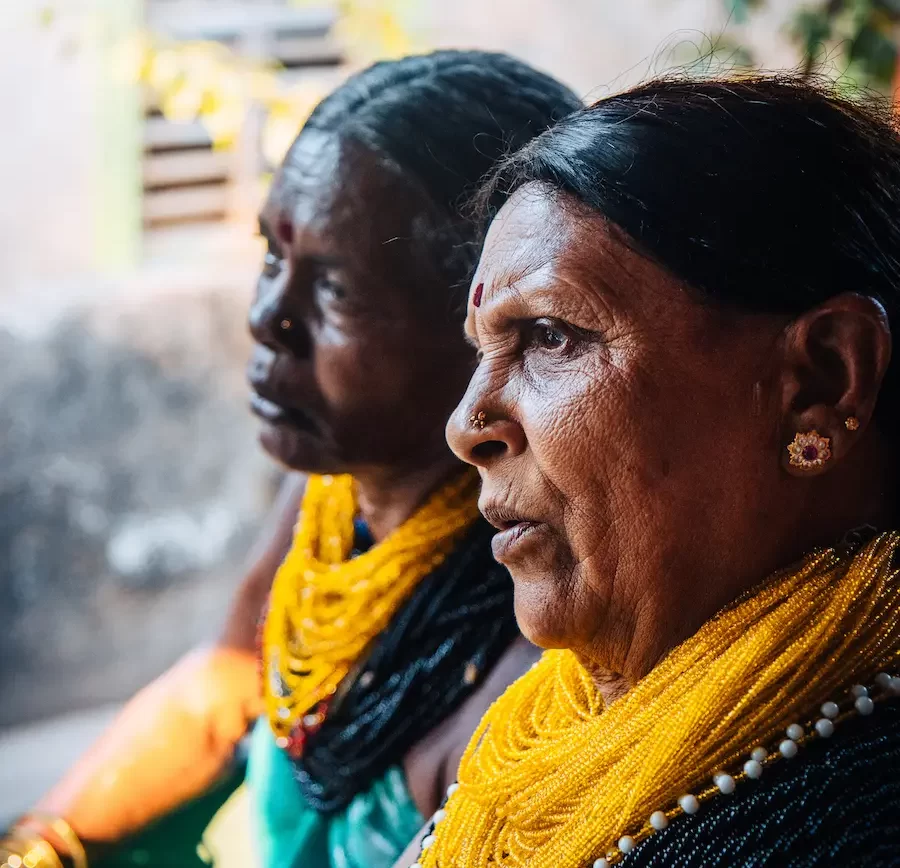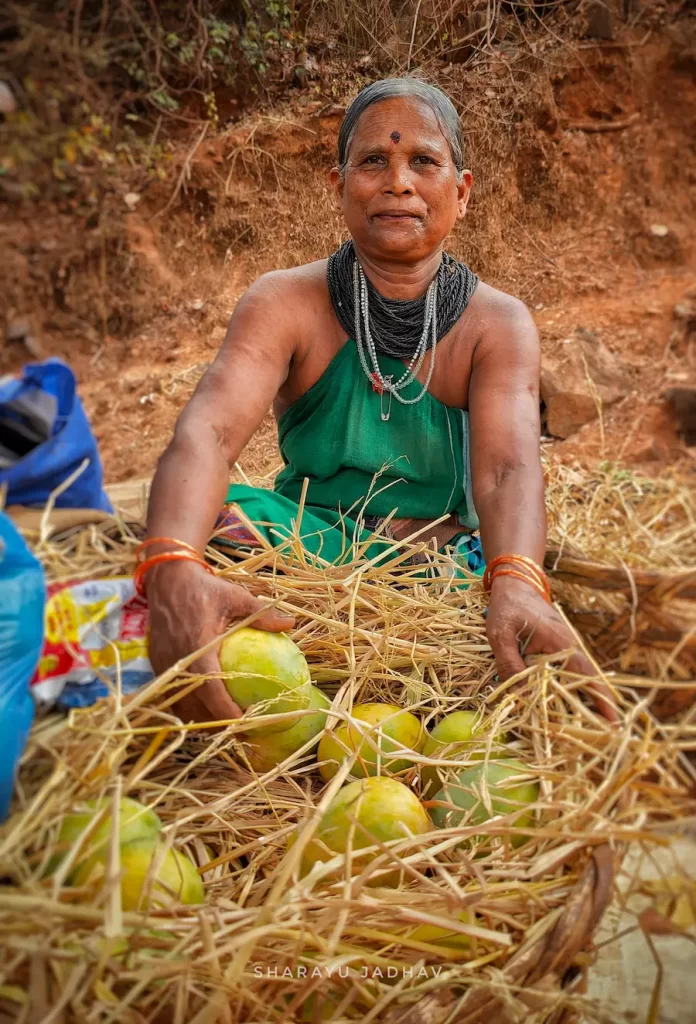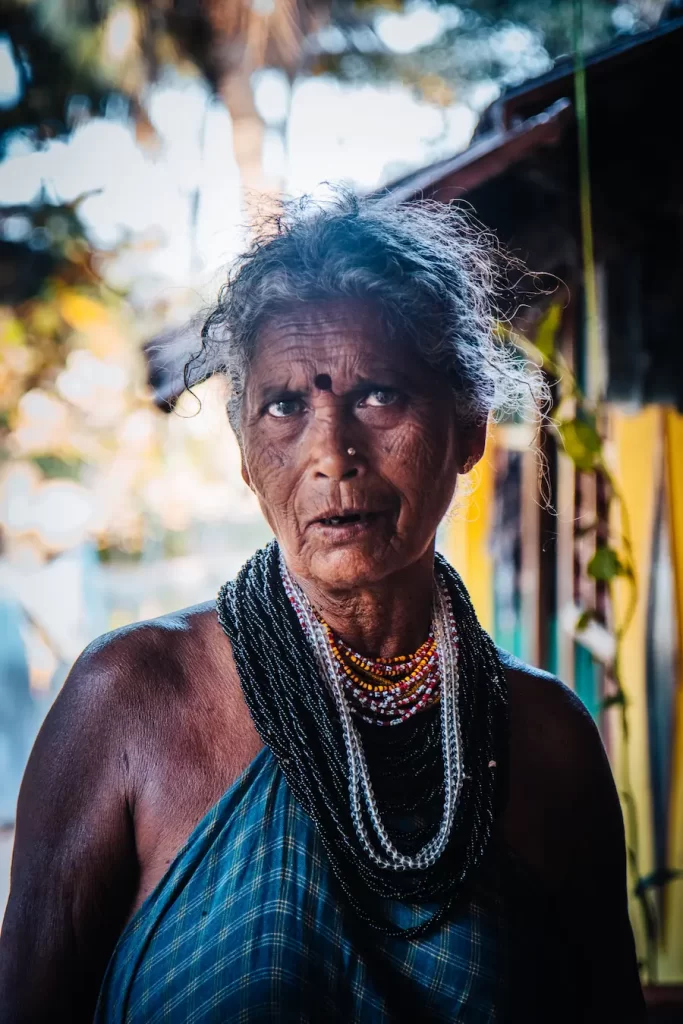Meeting the Indigenous community of Gokarna
The Hallaki Gowda community, native to Karnataka, India, takes pride in its profound cultural heritage closely linked with agriculture. Known for their age-old farming methods, they grow various crops like millets, rice, and cash crops. Apart from farming, their way of life is a fusion of tradition and modernity, including traditional housing and clothing, and a diet primarily centered around millets. Their strong social bonds and cultural celebrations are essential aspects of their identity, while they face the challenges of safeguarding their heritage in a transforming world.
Traditional Attire and Adornments

One of the most distinctive features of the Halakki Gowdas is their traditional attire. The women in this community have tanned skin and are often seen wearing colorful saris tied like sarongs. What truly catches the eye is the approximately six layers of beads they adorn around their necks. These beads are not mere decorations; they are a symbol of tradition and identity. Brightly colored buds and flowers in their hair add an extra layer of vibrancy to their appearance.
Traditional Jewelry
The jewellery worn by the Halakki Gowdas is a testament to their connection with nature. Crafted from stones and natural fibres, their jewellery includes necklaces, nose rings, and glass and metal bangles. Each piece tells a story, reflecting the community’s deep-rooted connection with their environment.
Ancient Agricultural Practices

The Halakki Gowdas have safeguarded age-old farming methods customized to suit the climate and landscape of their region. They have traditionally followed the Kumbri agriculture system, which entails growing crops in the fertile lowlands adjacent to the forest peripheries. This sustainable farming approach has been an integral aspect of their heritage for many generations.
Community Leadership
The Halakki Gowdas have a clearly defined administrative system unique to their community. They are guided by a leader known as the Gowda, who plays a crucial role in preserving unity within the community and managing internal affairs. This traditional leadership framework signifies their self-reliance and autonomy
A few shining beacons of the Halakki Community
Sukri Bommagowda and Tulsi Gowda, both belonging to the Halakki Vokkaliga community, have been honored with the esteemed Padma Shri awards in India. Their remarkable contributions and unwavering dedication to their respective fields have garnered them national acclaim. Sukri Bommagowda known as the ‘Nightingale of Halaki’s’ received Padma Shri for folk singing and Tulsi Gowda’s efforts in biodiversity conservation and herbal medicine preservation showcase the community’s deep-rooted heritage and commitment to safeguarding cultural and ecological traditions.
Unique Language and Heritage

The cultural heritage of the Halakki Gowdas extends beyond their attire and agricultural practices. Their language, Achchagannada, resembles Telugu, hinting at their historical migration from Andhra. Anthropologists believe this migration is linked to their staunch devotion to Thirupathi Thimmappa of Tirupati, Andhra Pradesh, and their songs’ references to the Bay of Bengal.
Preserving a Unique Identity:
Although they are commonly called Gowdas, it’s crucial to understand that the Halakki Gowdas are a separate and unique community, distinct from the larger and more prevalent Gowda caste in Karnataka. Their lifestyle, customs, and cultural traditions distinguish them as an extraordinary and separate community within the region.
The Hallaki Gowda community, deeply connected to Karnataka’s land, shows how culture and farming go hand in hand. They use old farming ways to keep their heritage alive and also adapt to modern life. While they face challenges to keep their traditions, they stay close-knit and celebrate their culture. They prove that tradition and progress can work together, enriching India’s diverse culture. Experience the Halakki Gowda’s rich culinary traditions with indigenous, forest-sourced vegetables and crops, thoughtfully incorporated into your dining at Red Earth Resort in Gokarna.



